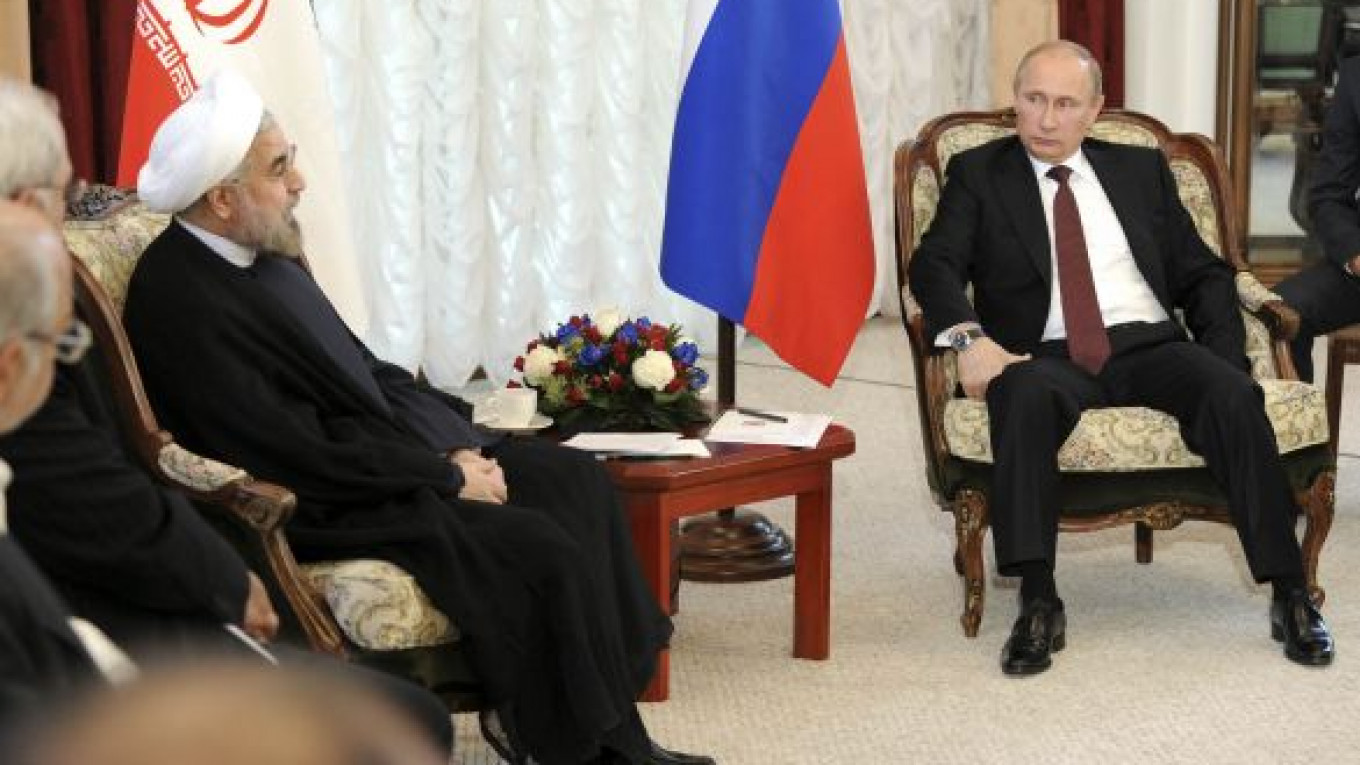While the members of the Shanghai Cooperation Organization (SCO) largely focused their attention on Syria and Iran at a summit in Bishkek, Kyrgyzstan, joint infrastructure projects and the energy sector were also in the spotlight.
The leaders of the SCO, which includes Russia, China, Kazakhstan, Tajikistan, Uzbekistan and Kyrgyzstan, signed the Bishkek Declaration, which defines their position on the key issues of world politics.
In relation to the conflict in Syria, they said they saw foreign intervention against a sovereign state without UN authorization as unacceptable.
The SCO's position is that the Syrian people should be given a chance to resolve internal conflicts on their own, given that the need for a military operation has lost urgency as the country agreed to join the Chemical Weapons Convention.
The SCO members criticized the idea of military intervention, saying that Syria should resolve internal conflicts on its own.
"The latest diplomatic measures have lowered the threat of direct military involvement," President Vladimir Putin said at the SCO summit on Friday, Itar-Tass reported. "A big issue in this context is the initiative to establish international control over Syria's chemical weapons."
Another chapter of the Bishkek Declaration referred to Iran and its nuclear program.
SCO members view threats of military intervention and sanctions imposed by some countries against Iran as unacceptable. They are convinced that there is no alternative to a peaceful resolution of the conflict, the declaration said.
Among other issues discussed in Bishkek was the need to improve transportation links across Central Asian countries.
Vladimir Putin proposed using the transit potential of the Trans-Siberian Railroad and Baikal-Amur Mainline, which will be upgraded in the near future.
"Russia is beginning to modernize the Trans-Siberian Railroad and Baikal-Amur Mainline. We are allocating considerable budget financing and bank loans for these projects and invite you to participate in them," Putin told the SCO members.
China is the one who badly needs a transport corridor to ship goods across Central Asia. One project discussed before — and it could become a rival alternative to the Trans-Siberian Railroad — was a railway link starting from the city of Kashgar on China's western border, going through Kazakhstan to the Caspian Sea.
While the railroad is likely to take some freight off the Trans-Siberian Railroad, it could complement another regional cooperation project.
Under the project, Russian, Belorussian and Kazakh state railway companies plan to create a joint venture called United Transportation and Logistics Company, with combined assets estimated at 21 billion rubles ($658 million). The aim of the joint venture is to channel part of the trade volumes between China and Europe to a route running through Kazakhstan, Russia and Belarus.
The countries are now improving their rail infrastructure and customs procedures.
Another key agreement reached at the summit was to go on with the plans to create an energy club within the SCO that could represent the interests of both major energy producers and consumers.
"The energy club could come up with a joint strategy for the region that would outline the main energy sources in the future," said Ivan Grachyov, head of the Energy Committee at the State Duma.
It could also establish an independent system of oil and gas price prediction as the existing ones sometimes raise doubts, he said.
Such a club can bring together oil and gas producing states to control supply and prices and settle existing disputes on delivery routes, experts said.
"It should become a transparent coordination center where it would become clear how much gas, for instance, China needs until 2020, so that there will be no unnecessary competition between producers," said Stanislav Pritchin, an expert at the Russian Academy of Sciences' Institute of Oriental Studies.
But the club cannot become a Central Asian OPEC, as the SCO member-states have different interests and obligations and because the organization includes both exporters and importers of energy, he said.
Contact the author at a.panin@imedia.ru
A Message from The Moscow Times:
Dear readers,
We are facing unprecedented challenges. Russia's Prosecutor General's Office has designated The Moscow Times as an "undesirable" organization, criminalizing our work and putting our staff at risk of prosecution. This follows our earlier unjust labeling as a "foreign agent."
These actions are direct attempts to silence independent journalism in Russia. The authorities claim our work "discredits the decisions of the Russian leadership." We see things differently: we strive to provide accurate, unbiased reporting on Russia.
We, the journalists of The Moscow Times, refuse to be silenced. But to continue our work, we need your help.
Your support, no matter how small, makes a world of difference. If you can, please support us monthly starting from just $2. It's quick to set up, and every contribution makes a significant impact.
By supporting The Moscow Times, you're defending open, independent journalism in the face of repression. Thank you for standing with us.
Remind me later.






